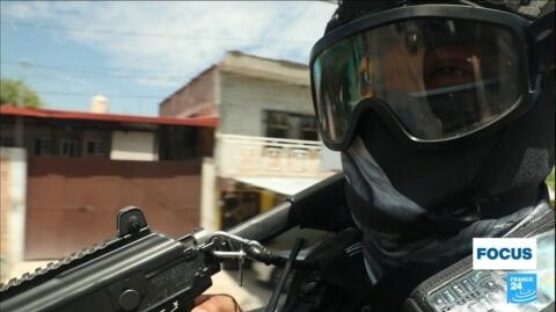Celeya
24 Apr
The central Mexican city of Celaya has become the scene of a brutal turf war between rival drug cartels. These criminal groups have taken advantage of its strategic position at the crossroads for transporting drugs into the United States. Kidnappings, shootouts with police and drive-by killings now occur on an almost daily basis in broad daylight. Nearly 500 people were killed in Celaya last year. The city's police officers (pictured) risk their lives every day and are forced to travel in armoured vehicles. Our France 2 colleagues report, with FRANCE 24's Lauren Bain.
Latest
1 hour ago
Voters under 30 account for a sixth of Europe's electorate. That's an important group for political parties to win over during this EU election season. Young people are less likely to take part in European elections than older generations, which makes them a prize for parties that know how to clinch their votes.
1 hour ago
President Volodymyr Zelenskyy's term in office was supposed to end on May 20, 2024, but new elections have been suspended for as long as wartime Ukraine operates under martial law.
1 hour ago
Chancellor Olaf Scholz has visited the southwestern German state of Saarland, where heavy rainfall has triggered the worst flooding in three decades.
5 hours ago
Dorsa Yavarivafa and her mother left Tehran in 2018 out of fear and a love of badminton. Now in England, Yavarivafa will compete as part of the International Olympic Committee's refugee team, a feat which she hopes to use to send a message that refugees "are normal people."
5 hours ago
With just one week to go before South Africa heads to the polls, we head to Cape Town, where our correspondent tells us what's at stake before the crucial day.
6 hours ago
With over 830,000 inmates, Brazil has the third-largest prison population in the world, behind only the US and China. According to data from the National Secretariat for Penal Policy, there are almost 166,000 more prisoners than there are places currently available in the country's jails. In some penitentiaries, such as in the state of Rio de Janeiro, prison overcrowding can reach 190 percent. Brazilian prisons are also regularly the scene of rebellions and massacres.












